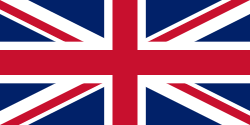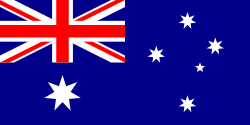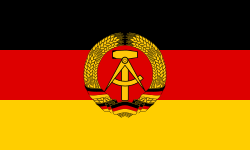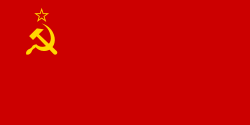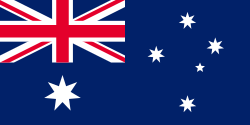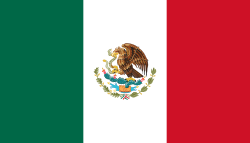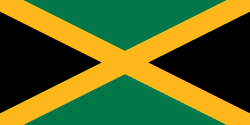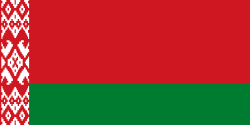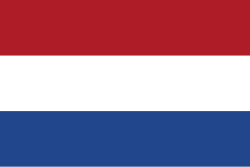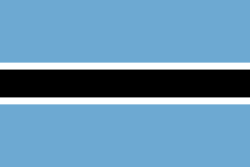Christine Ohuruoguová
| Christine Ohuruoguová | |
|---|---|
 Christine Ohuruoguová (2008) | |
| Osobní informace | |
| Narození | 17. května 1984 (39 let) Londýn |
| Stát | |
| Kariéra | |
| Disciplína | 400 m |
| Účasti na LOH | 2004, 2008, 2012 |
| Účasti na MS | 2005, 2007, 2009, 2011, 2013 |
| Některá data mohou pocházet z datové položky. | |
| Přehled medailí | ||
|---|---|---|
| zlato | Peking 2008 | běh na 400 m |
| stříbro | Londýn 2012 | běh na 400 m |
| bronz | Peking 2008 | štafeta 4×400 m |
| bronz | Rio de Janeiro 2016 | štafeta 4 × 400 m |
| Mistrovství světa v atletice | ||
| zlato | Ósaka 2007 | běh na 400 m |
| zlato | Moskva 2013 | běh na 400 m |
| stříbro | Moskva 2013 | štafeta 4 × 400 m |
| stříbro | Peking 2015 | štafeta 4 × 400 m |
| bronz | Helsinky 2005 | štafeta 4 × 400 m |
| bronz | Ósaka 2007 | štafeta 4 × 400 m |
| bronz | Berlín 2009 | štafeta 4 × 400 m |
| bronz | Tegu 2011 | štafeta 4 × 400 m |
| Halové MS v atletice | ||
| zlato | Istanbul 2012 | štafeta 4 × 400 m |
| bronz | Sopoty 2014 | štafeta 4 × 400 m |
| Halové ME v atletice | ||
| zlato | Göteborg 2013 | štafeta 4 × 400 m |
Christine Ijeoma Ohuruoguová (* 17. května 1984 Londýn) je britská atletka, sprinterka, olympijská vítězka a mistryně světa v běhu na 400 metrů.
Sportovní kariéra
Její hlavní disciplínou je běh na 400 metrů. Na této trati se stala mistryní světa na šampionátu v Ósace v roce 2007. V závodě si vytvořila osobní rekord 49,61. O rok později se stala olympijskou vítězkou na stejné trati. Zlato z Pekingu na další olympiádě v Londýně v roce 2012 neobhájila, skončila na druhém místě.
Od začátku srpna roku 2006 měla dočasně pozastavenou činnost a nemohla se účastnit ME v atletice v Göteborgu. Důvodem pozastavení byla zameškání tří dopingových kontrol. V září 2006 byla národním svazem potrestána ročním zákazem startů, který začal platit 6. srpna 2006 a vypršel 5. srpna 2007. Podle pravidel Britského olympijského výboru nebude moci Ohuruoguová reprezentovat na Letních olympijských hrách. V říjnu 2007 se Ohuruoguová proti trestu u Mezinárodní sportovní arbitráže CAS odvolala.[1] Se svoji obhajobou, že dopingové kontrolory minula vždy pokaždé kvůli změně tréninkového plánu však původně neuspěla.[2] V listopadu 2007 nakonec Národní sportovní arbitráž vyhověla jejímu odvolání proti doživotnímu zákazu startů na olympijských hrách.[3]
Osobní rekordy
- běh na 100 metrů – 11,35 s (2008)
- běh na 200 metrů – 22,85 s (2009)
- běh na 400 metrů – 49,41 s (2013)
Odkazy
Reference
- ↑ Atletka Ohuruoguová se odvolala proti trestu za zmeškané testy. Aktuálně.cz [online]. Economia, 2006-10-11 [cit. 2013-05-29]. Dostupné online.[nedostupný zdroj]
- ↑ Atletka Ohuruoguová neuspěla s odvoláním proti ročnímu trestu. Aktuálně.cz [online]. Economia, 2007-04-04 [cit. 2013-05-28]. Dostupné online.[nedostupný zdroj]
- ↑ ČTK. Mistryně světa na čtvrtce Ohuruoguová smí startovat na olympiádě. Sport.cz [online]. 2007-11-27 [cit. 2013-05-28]. Dostupné online.
Externí odkazy
 Obrázky, zvuky či videa k tématu Christine Ohuruoguová na Wikimedia Commons
Obrázky, zvuky či videa k tématu Christine Ohuruoguová na Wikimedia Commons - Christine Ohuruoguová na stránkách Světové atletiky (anglicky)
- Christine Ohuruoguová v databázi Olympedia (anglicky)
Média použitá na této stránce
Olympic Rings without "rims" (gaps between the rings), As used, eg. in the logos of the 2008 and 2016 Olympics. The colour scheme applied here was specified in 2023 guidelines.
Olympic Rings without "rims" (gaps between the rings), As used, eg. in the logos of the 2008 and 2016 Olympics. The colour scheme applied here was specified in 2023 guidelines.
Flag of Second Polish Republic and later People's Republic of Poland in period from March 29, 1928 to March 10, 1980. Red shade used here is HTML "vermilion" #E34234. Proportion 5:8.
Flag of Second Polish Republic and later People's Republic of Poland in period from March 29, 1928 to March 10, 1980. Red shade used here is HTML "vermilion" #E34234. Proportion 5:8.
Vlajka České republiky. Podoba státní vlajky České republiky je definována zákonem České národní rady č. 3/1993 Sb., o státních symbolech České republiky, přijatým 17. prosince 1992 a který nabyl účinnosti 1. ledna 1993, kdy rozdělením České a Slovenské Federativní republiky vznikla samostatná Česká republika. Vlajka je popsána v § 4 takto: „Státní vlajka České republiky se skládá z horního pruhu bílého a dolního pruhu červeného, mezi něž je vsunut žerďový modrý klín do poloviny délky vlajky. Poměr šířky k její délce je 2 : 3.“
Flag of Australia, when congruence with this colour chart is required (i.e. when a "less bright" version is needed).
See Flag of Australia.svg for main file information.Flag of Senegal
Flag of Jamaica. “The sunshine, the land is green, and the people are strong and bold” is the symbolism of the colours of the flag. GOLD represents the natural wealth and beauty of sunlight; GREEN represents hope and agricultural resources; BLACK represents the strength and creativity of the people. The original symbolism, however, was "Hardships there are, but the land is green, and the sun shineth", where BLACK represented the hardships being faced.
Autor: Flickr user Nick J Webb, Licence: CC BY 2.0
Christine Ohuruogu, British athlete, at the parade in London to celebrate the achievements of British competitors at the 2008 Summer Olympics.
The flag of the Dominican Republic has a centered white cross that extends to the edges. This emblem is similar to the flag design and shows a bible, a cross of gold and 6 Dominican flags. There are branches of olive and palm around the shield and above on the ribbon is the motto "Dios,Patria!, Libertad" ("God, Country, Freedom") and to amiable freedom. The blue is said to stand for liberty, red for the fire and blood of the independence struggle and the white cross symbolized that God has not forgotten his people. "Republica Dominicana". The Dominican flag was designed by Juan Pablo Duarte, father of the national Independence of Dominican Republic. The first dominican flag was sewn by a young lady named Concepción Bona, who lived across the street of El Baluarte, monument where the patriots gathered to fight for the independence, the night of February 27th, 1844. Concepción Bona was helped by her first cousin María de Jesús Pina.
